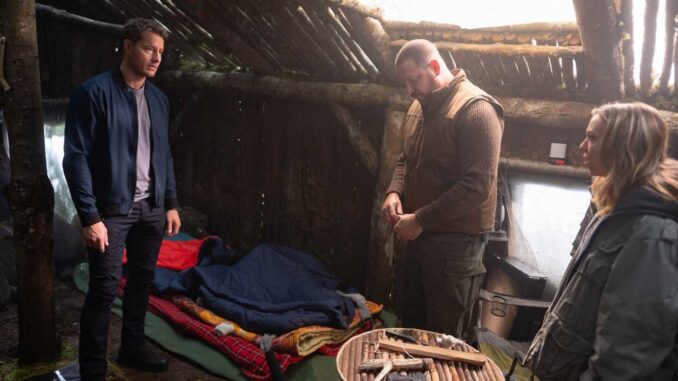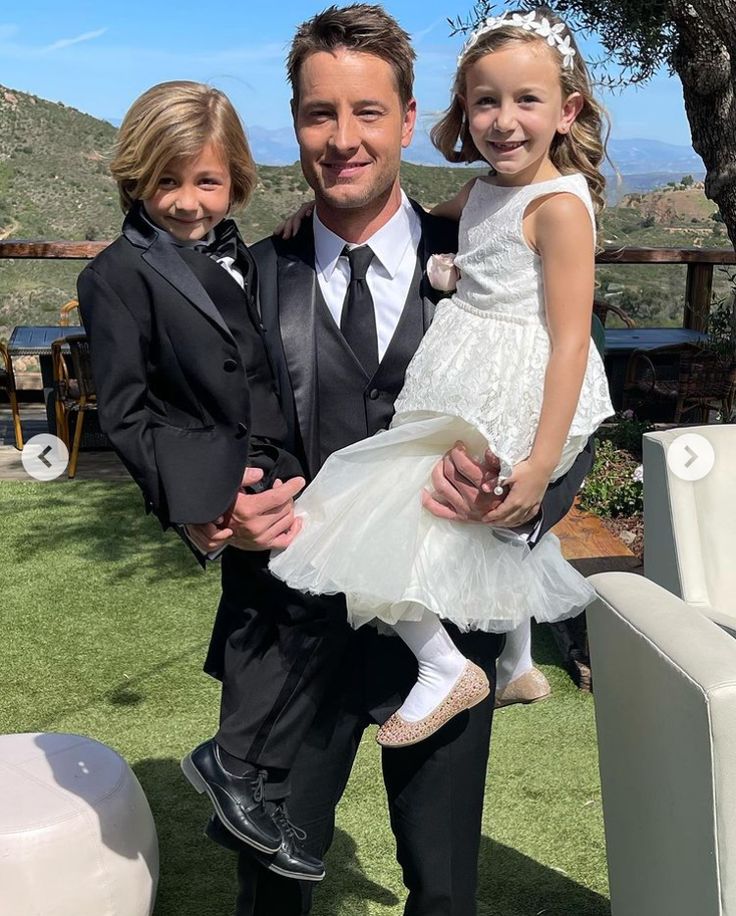
Action heroes of the past are much more toxically masculine. Hartley’s take on the reason for Tracker’s success with the audience is definitely one that surprised me, but it is also likely a contributor to viewers sticking with the show since the premiere. Colter Shaw makes for a different kind of action hero with Tracker like a modern Western.
Action heroes of the past are much more toxically masculine. These are the kinds of characters who ignore the needs of others around them in order to achieve their own goals, they take advantage of the women whose paths they cross, and they always have to be the biggest and loudest force in the room. Colter is the opposite of that. While he might keep himself closed off when it comes to his past and the traumas associated with his family, he is more than willing to offer complete strangers support, empathy, and his own strength to help them through their traumas.
While Colter is busy searching for clues in seemingly impossible cases, he always handles witnesses or those who know the victims with kid gloves. He is soft spoken and understanding, waiting to understand who they are and what they know before he ever accuses anyone of anything. Even in the season 2 episode “The Nightingale,” in which Colter is faced with those who prefer violence do the talking, he chooses to use his words first. There, he is faced with gang members, angry police officers, and a survivalist, and he still attempts to diffuse situations by talking things out.
That is very much the hallmark of Colter’s character. Colter Shaw has all the skills (and then some) of classic action heroes, but without all of their toxic traits. That makes him a refreshing hero for today’s TV climate, where many newer procedurals are being canceled, and many characters are not getting the chance to be fleshed out. Tracker will likely outlive many of the newer procedurals, and that is due in large part to Hartley’s correct assessment of Colter Shaw’s positive masculinity.
Let’s face it—TV is packed with hypermasculine heroes who grunt, brood, and punch their way through problems. So when Tracker introduced us to Colter Shaw, a man who uses empathy, emotional intelligence, and still manages to be a total badass, it felt like a breath of fresh air. But here’s the thing: while fans praise the show’s action and mystery, there’s one crucial element they’re sleeping on—Colter’s healthy masculinity.
This isn’t just about being a “nice guy.” This is about portraying a modern man who’s tough when needed but never afraid to show compassion, vulnerability, and respect. Let’s dig into why this portrayal is such a game-changer and why Tracker deserves more credit for it.
Understanding Healthy Masculinity
What Is Healthy Masculinity, Anyway?
Healthy masculinity isn’t about denying strength—it’s about redefining it. It’s the ability to stand tall without stepping on others. It’s vulnerability without weakness, compassion without being passive, and strength without aggression.
Why It Matters in Modern Media
We’re bombarded with outdated images of what a “real man” should be. When shows like Tracker challenge those norms, they help reshape how society sees masculinity—and how men see themselves.
Meet Colter Shaw—The Tracker With a Heart
Who Is Colter Shaw?
Colter Shaw, played by Justin Hartley, is a lone-wolf survivalist who travels the country solving crimes and finding missing people. But under that rugged exterior lies a deeply reflective, emotionally grounded man.
He Listens More Than He Talks
How often do we see a male lead who doesn’t bulldoze his way through dialogue? Colter actually listens—to victims, suspects, witnesses. It’s subtle, but it sets him apart.
He’s Not Afraid to Care
Colter gets emotionally involved. He doesn’t pretend not to care to seem cool. His humanity is what makes his investigations successful. Empathy is his secret weapon.
Breaking the Mold—Colter vs. Traditional Male Leads
No Macho Posturing
Unlike many action heroes, Colter doesn’t rely on testosterone-fueled dominance. He doesn’t flex muscles just for show. He uses his brains as much as his brawn.
No Toxic Traits in Sight
Colter doesn’t belittle others. He doesn’t see kindness as weakness. He doesn’t have to “win” every conversation. He’s proof that masculinity and maturity can go hand in hand.
Emotional Intelligence as a Superpower
Reading the Room Like a Pro
Colter picks up on nonverbal cues. He notices when someone’s scared or hiding something—not to manipulate, but to help. That’s emotional intelligence in action.
Handling Conflict Without Escalation
Sure, he can fight. But he doesn’t look for fights. He de-escalates whenever possible. It’s the difference between being tough and being smart.
Healthy Relationships On Screen
Respecting Women Without Patronizing Them
Colter’s interactions with women are respectful, but never condescending. He treats them as equals, not damsels or trophies. Refreshing, right?
Brotherhood Without Bravado
When Colter connects with other men—like law enforcement or locals—it’s rarely about one-upping. It’s built on mutual respect, not ego.
Trauma and Healing—Not Hiding
A Backstory That Doesn’t Define Him
Colter’s past is complicated, especially with his family trauma. But unlike many leads, he doesn’t bury it or let it poison him. He learns from it.
Growth Over Grudges
Instead of clinging to pain or vengeance, Colter focuses on healing. That’s not just rare in male leads—it’s revolutionary.
Masculinity and Morality
A Moral Compass That Doesn’t Waver
Colter’s moral code guides every case he takes. He’s not chasing fame or money—he wants justice. He’s principled without being preachy.
Doing the Right Thing Even When It’s Hard
What’s real strength? Doing what’s right even when it hurts. Colter models this again and again.
Why It Resonates With Audiences
The Growing Craving for Realism
Today’s viewers are done with shallow caricatures. We want characters who feel real. That’s why Colter connects—he’s flawed but honest.
Men Want Representation Too
Male viewers are hungry for characters who reflect their struggles and values. Colter offers a blueprint for healthy identity.
The Cultural Shift Behind the Screen
Hollywood’s Evolving View of Masculinity
From Marvel heroes to indie dramas, masculinity is being reimagined. Colter’s character is part of this evolution—and it’s about time.
A Role Model for the Next Generation
Young boys need more than superheroes in capes. They need heroes who feel, cry, love, and still lead. Colter checks all those boxes.

Viewer Reactions—Louder Than Words
Fan Forums Are Buzzing
Reddit threads and Twitter (now X) timelines are filled with fans praising Colter’s character—not just for being cool, but for being real.
“He’s the Man I Wish I Could Be”
It’s not rare to see men commenting things like this. That kind of impact? It matters.
The Ripple Effect of Representation
Inspiring Other Shows to Follow Suit
When Tracker succeeds with Colter, other shows take notes. This could spark a trend of more emotionally available, well-rounded male leads.
Changing the Conversation on Masculinity
This isn’t just entertainment—it’s cultural progress. Colter is helping redefine what it means to be a man in the 21st century.
Conclusion: Colter Shaw Is the Hero We Needed
Colter Shaw isn’t just solving crimes—he’s quietly reshaping how masculinity looks on screen. In a world starved for real, grounded, and emotionally intelligent male leads, Tracker gives us something rare: a man who’s strong without being harsh, sensitive without being weak, and confident without being cocky.
That kind of representation doesn’t just make for good TV—it helps build a better culture. And maybe, just maybe, that’s Colter’s most important mission yet.